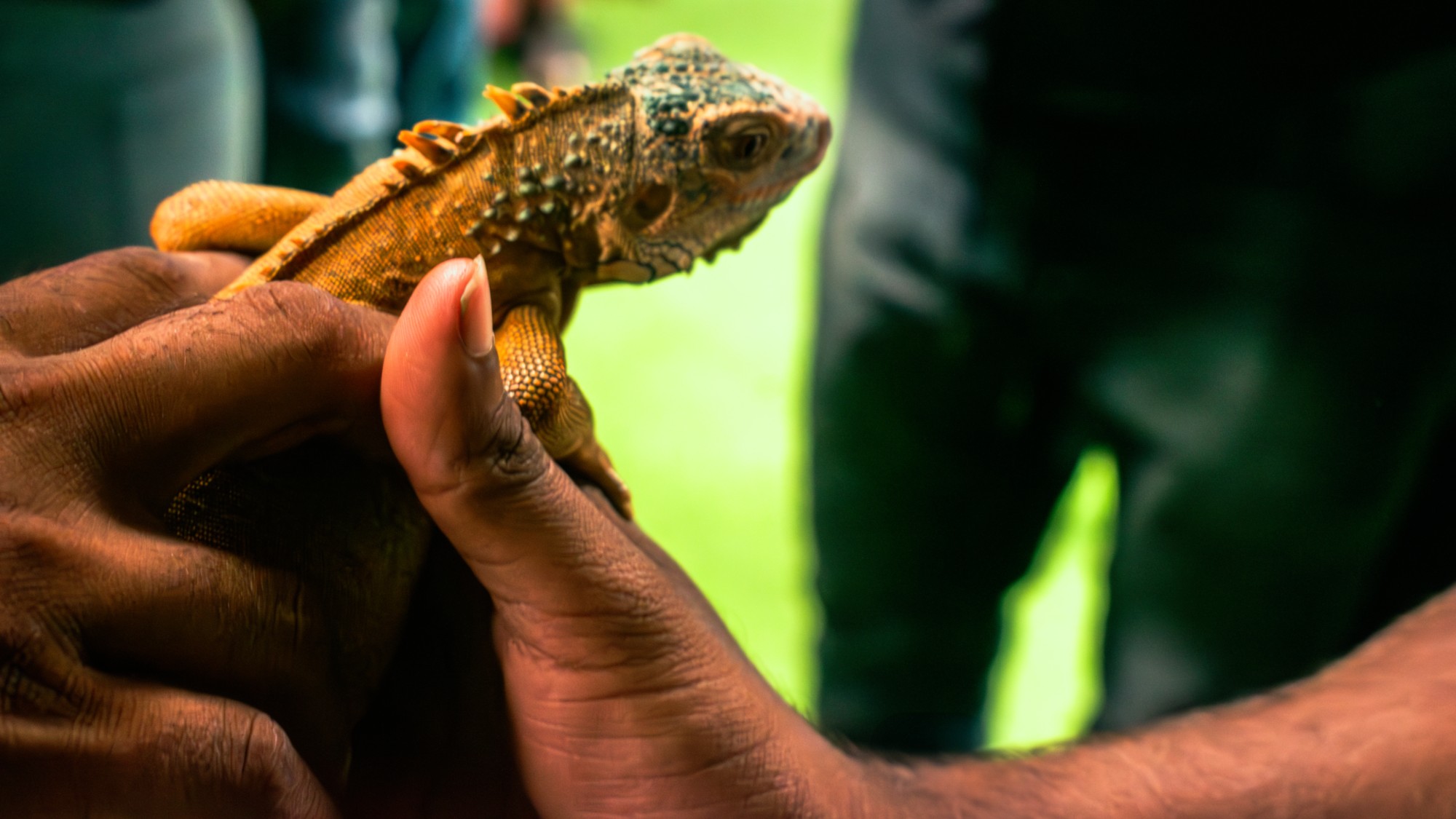Humans heal much slower than other mammals
Slower healing may have been an evolutionary trade-off when we shed fur for sweat glands


A free daily email with the biggest news stories of the day – and the best features from TheWeek.com
You are now subscribed
Your newsletter sign-up was successful
What happened
People take two to three times as long to heal from wounds as other mammals, a team of biologists reported Tuesday in the journal Proceedings of the Royal Society B. The researchers suggested the slower healing may have been an evolutionary trade-off when we shed fur for sweat glands.
Who said what
Watching wild baboons fight in Kenya, "I was struck by how frequently they sustained injuries," lead study researcher Akiko Matsumoto-Oda of Japan's University of the Ryukyus told The New York Times, "and, even more, by how rapidly they recovered — even from seemingly severe wounds." Her team's research found that chimpanzees, baboons, monkeys, mice and rats all healed at roughly the same rate, more than twice as quickly as humans.
"Most importantly," the fast healing of chimpanzees "implies that the slowed wound-healing seen in humans likely evolved after the divergence from our common ancestor with chimpanzees," Matsumoto-Oda told New Scientist. Hair follicles contain stem cells that can repair torn skin, and unlike most mammals, "human skin has very puny hair follicles" but ample sweat glands, Elaine Fuchs, a stem cell biologist at the Rockefeller University who was not involved in the study, told the Times.
The Week
Escape your echo chamber. Get the facts behind the news, plus analysis from multiple perspectives.

Sign up for The Week's Free Newsletters
From our morning news briefing to a weekly Good News Newsletter, get the best of The Week delivered directly to your inbox.
From our morning news briefing to a weekly Good News Newsletter, get the best of The Week delivered directly to your inbox.
What next?
"We evolved to cool by sweating profusely," allowing physical activity in the heat and cooling our large brains, Harvard evolutionary biologist Daniel Lieberman told the Times. "The evolutionary disadvantage is that wound healing is slowed," Fuchs said, but unlike other mammals, humans "can put on a coat if they need to."
A free daily email with the biggest news stories of the day – and the best features from TheWeek.com
Peter has worked as a news and culture writer and editor at The Week since the site's launch in 2008. He covers politics, world affairs, religion and cultural currents. His journalism career began as a copy editor at a financial newswire and has included editorial positions at The New York Times Magazine, Facts on File, and Oregon State University.
-
 How Democrats are turning DOJ lemons into partisan lemonade
How Democrats are turning DOJ lemons into partisan lemonadeTODAY’S BIG QUESTION As the Trump administration continues to try — and fail — at indicting its political enemies, Democratic lawmakers have begun seizing the moment for themselves
-
 ICE’s new targets post-Minnesota retreat
ICE’s new targets post-Minnesota retreatIn the Spotlight Several cities are reportedly on ICE’s list for immigration crackdowns
-
 ‘Those rights don’t exist to protect criminals’
‘Those rights don’t exist to protect criminals’Instant Opinion Opinion, comment and editorials of the day
-
 Russia’s ‘cyborg’ spy pigeons
Russia’s ‘cyborg’ spy pigeonsUnder the Radar Moscow neurotech company with Kremlin-linked funding claims to implant neural chips in birds’ brains to control their flight, and create ‘bio-drones’
-
 How roadkill is a surprising boon to scientific research
How roadkill is a surprising boon to scientific researchUnder the radar We can learn from animals without trapping and capturing them
-
 The ocean is getting more acidic — and harming sharks’ teeth
The ocean is getting more acidic — and harming sharks’ teethUnder the Radar ‘There is a corrosion effect on sharks’ teeth,’ the study’s author said
-
 Cows can use tools, scientists report
Cows can use tools, scientists reportSpeed Read The discovery builds on Jane Goodall’s research from the 1960s
-
 5 recent breakthroughs in biology
5 recent breakthroughs in biologyIn depth From ancient bacteria, to modern cures, to future research
-
 Blue Origin launches Mars probes in NASA debut
Blue Origin launches Mars probes in NASA debutSpeed Read The New Glenn rocket is carrying small twin spacecraft toward Mars as part of NASA’s Escapade mission
-
 Dinosaurs were thriving before asteroid, study finds
Dinosaurs were thriving before asteroid, study findsSpeed Read The dinosaurs would not have gone extinct if not for the asteroid
-
 Parthenogenesis: the miracle of 'virgin births' in the animal kingdom
Parthenogenesis: the miracle of 'virgin births' in the animal kingdomThe Explainer Asexual reproduction, in which females reproduce without males by cloning themselves, has been documented in multiple species
